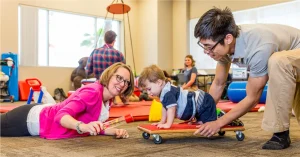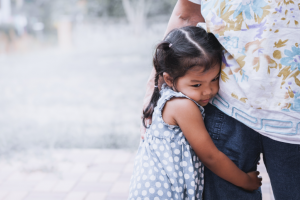
For many parents, reading books and stories, whether fictional or nonfictional, is a great joy for them to do. Of course, that is not the only benefit both parties get from storytelling, reading to children is one of the greatest sources of linguistic and phonological knowledge!
In the study, researchers conducted a comparison of how well young children can learn words/vocabulary with picture books or child directed speech conversations. They found that the picture books contained more detailed, unique words than child directed speech conversations with adults.
Therefore, using picture books with children can advance their mechanism of language learning and learn various, new vocabulary words. Child directed speech is still useful in linguistic input, however, there is more to learning language than simply talking to your child.
To read more, click here!
Ashley Bejar, UConn KIDS Research Assistant











